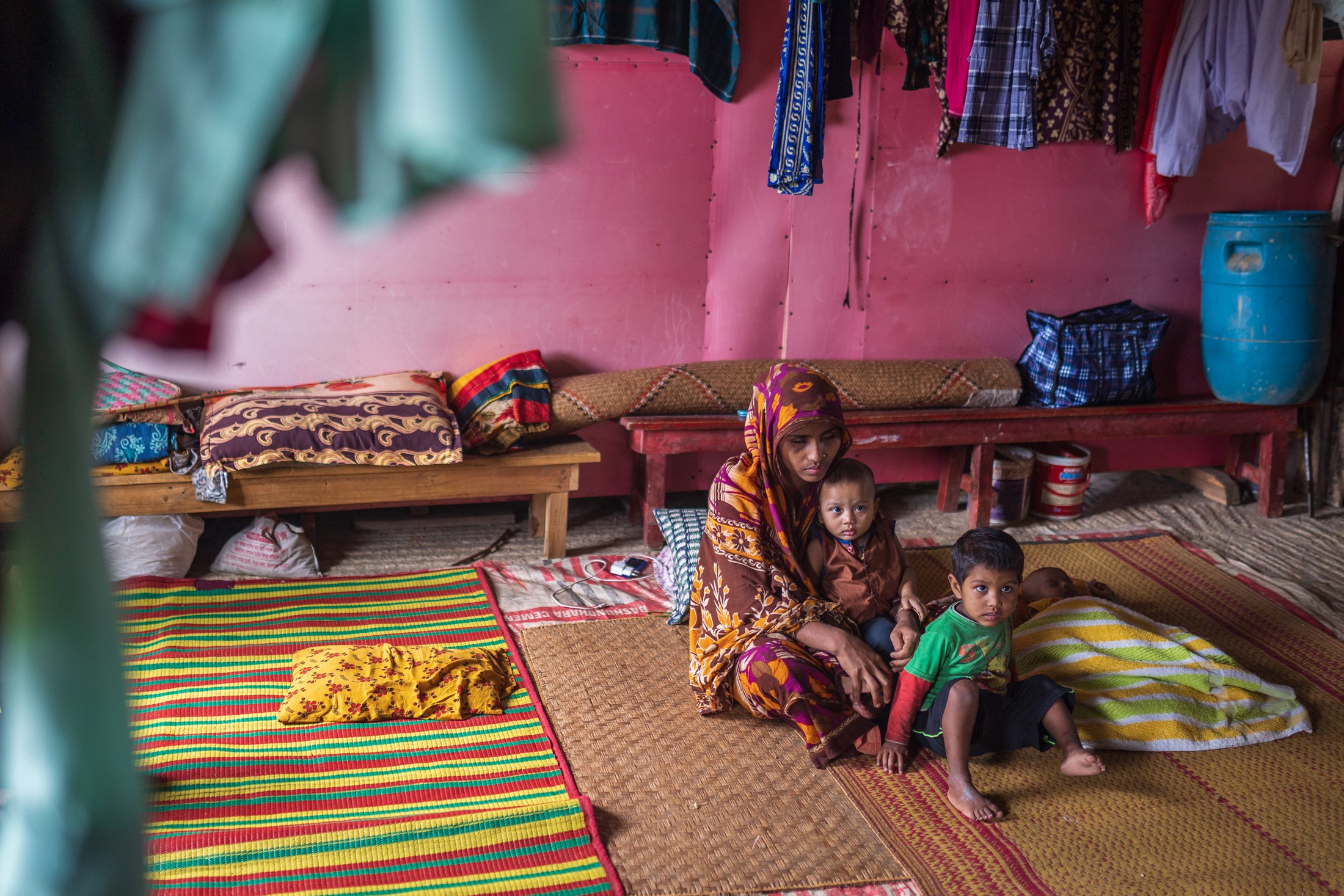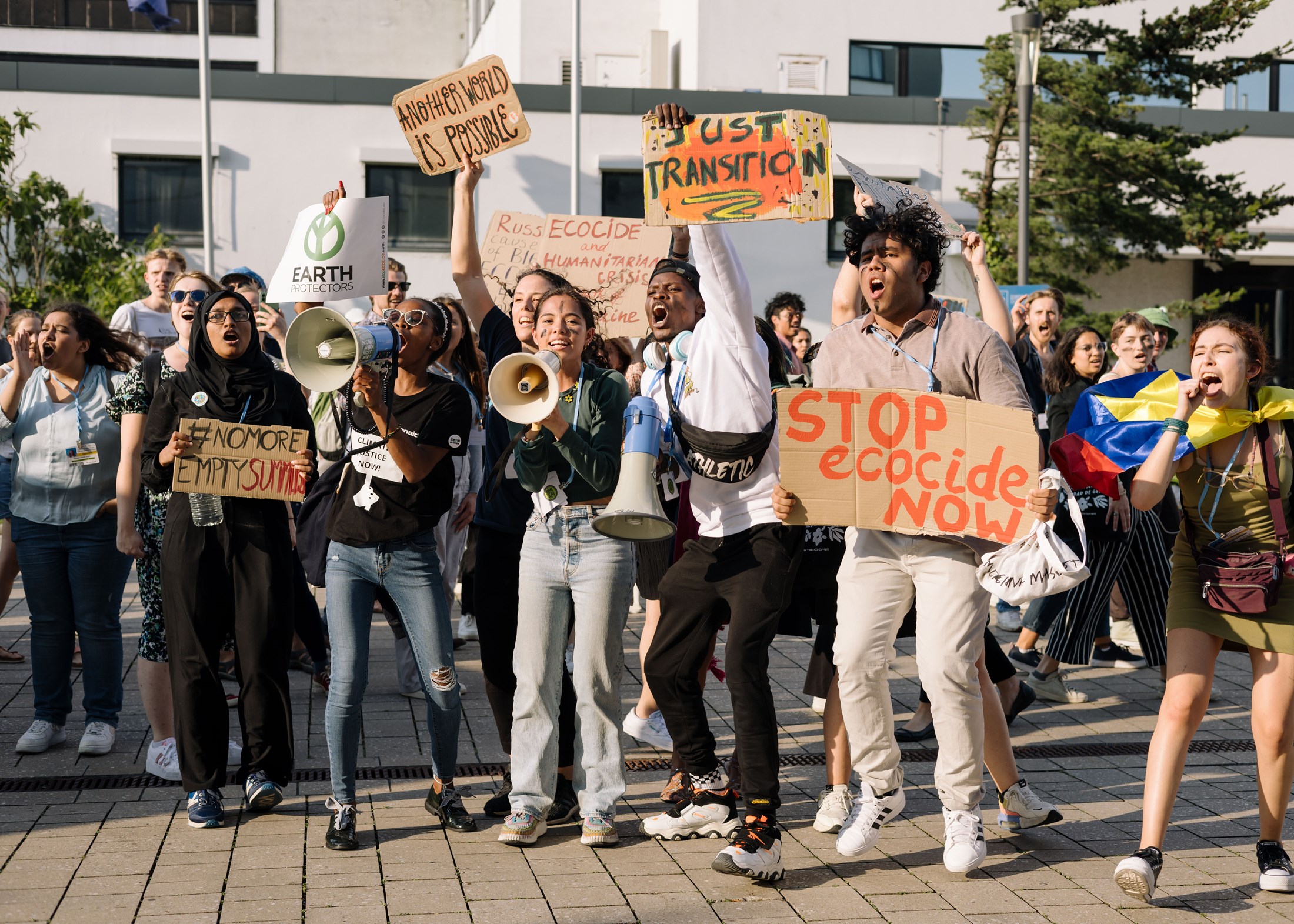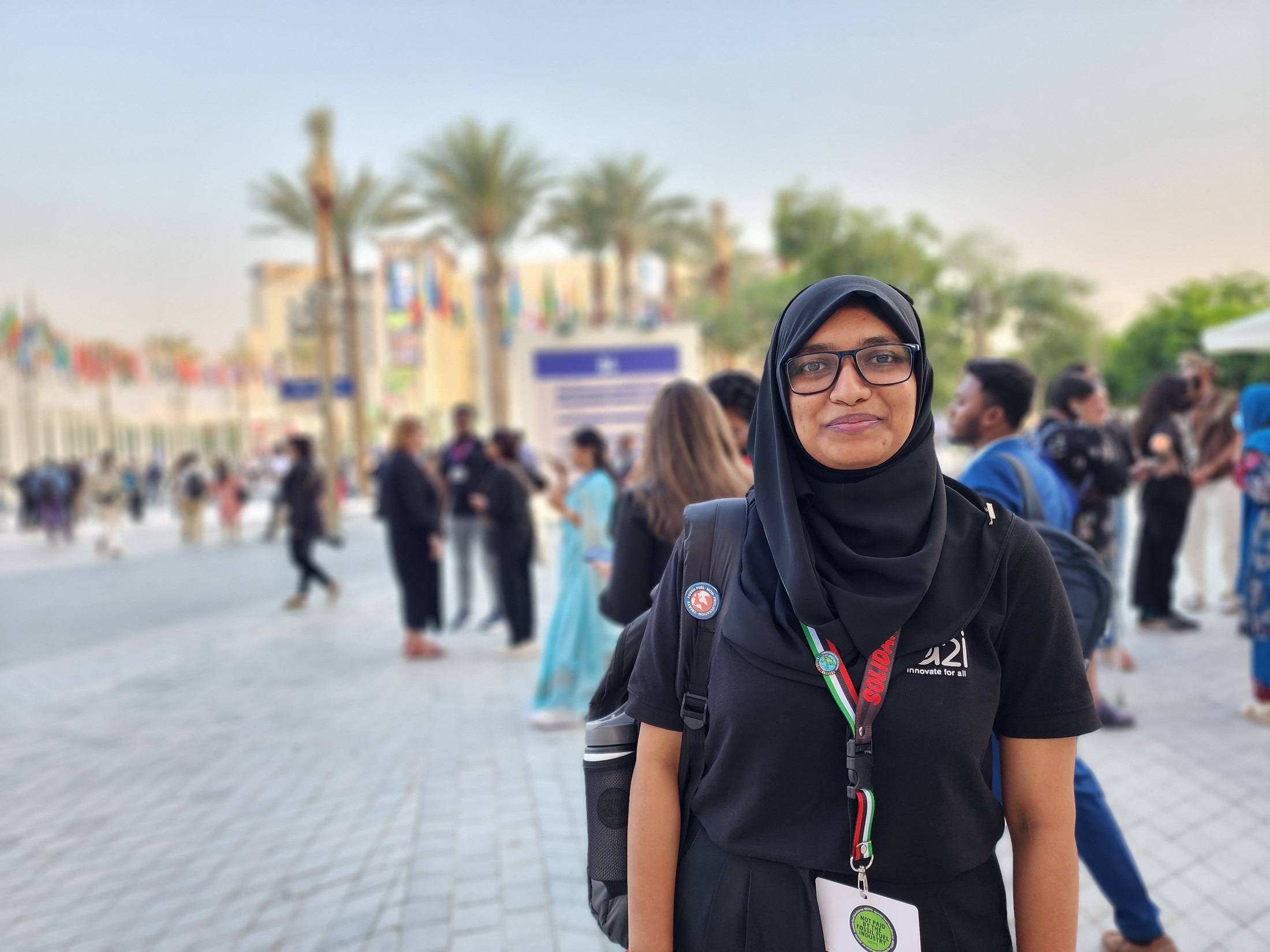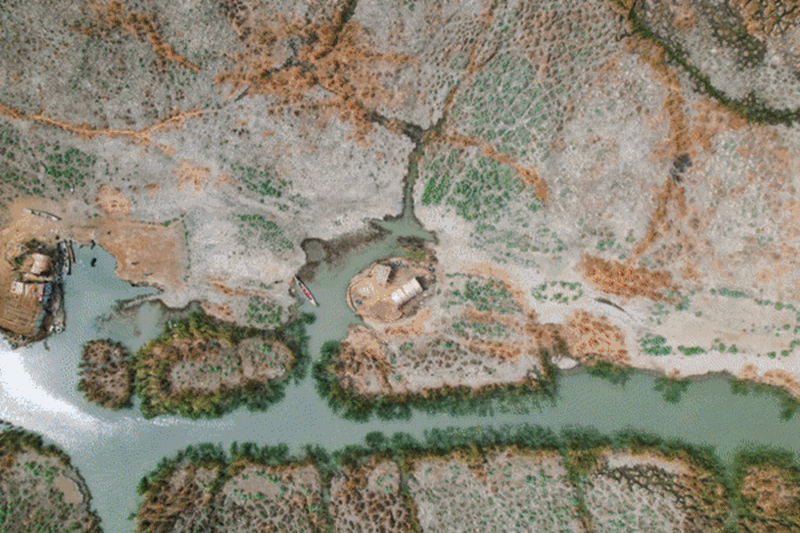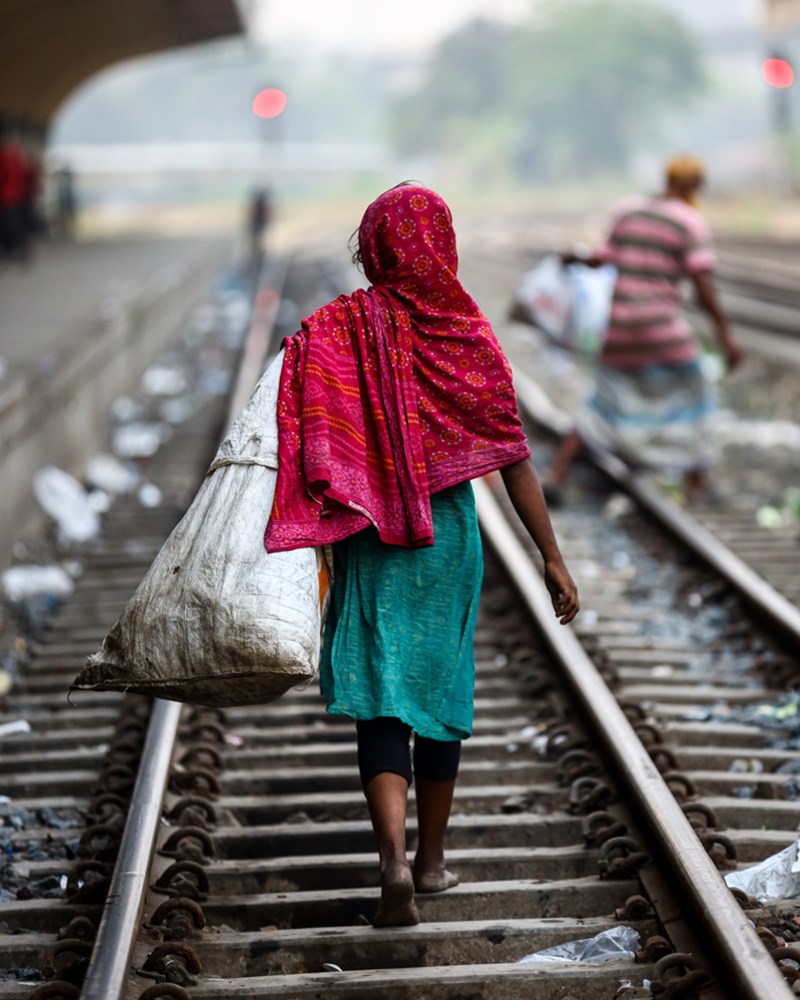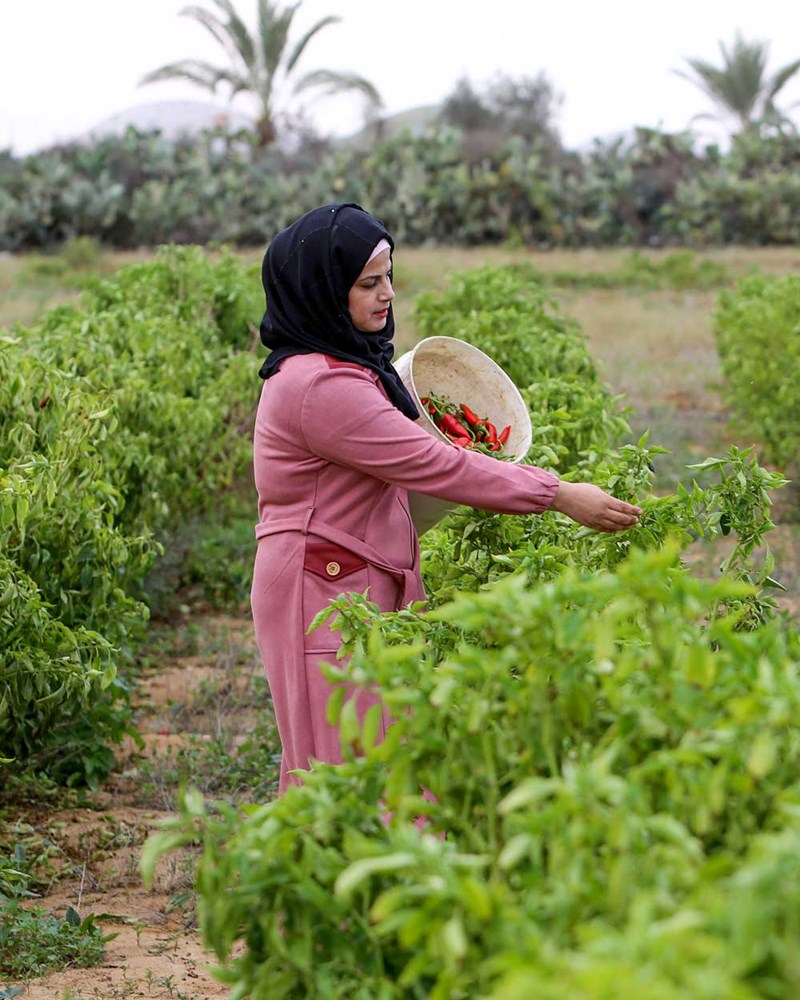Bangladesh is one of the world’s most climate-vulnerable countries despite contributing less than one percent of global emissions. Rising sea levels are causing widespread floods, affecting freshwater supplies, and destroying crops and grazing land. In 2022 alone, extreme weather events displaced more than seven million Bangladeshis and by 2050, one in seven people there are expected to be on the move.
Migration is a way of life in Bangladesh. For decades, families from around the country have been piling into the capital Dhaka in search of work and education opportunities not available in the rural areas. But in recent years, it is not just poverty and a lack of development pushing people into the Dhaka’s slums, it is also climate change.
Women and children are the hardest hit by this migration, with girls being taken out of school, and in extreme cases being forced into sex work and other exploitative practices.
Farzana Faruk Jhumu is determined to rewrite this script. The 25-year-old is a UNICEF Youth Advocate, one of more than 80 young activists, ranging from 11 to 26 years old, chosen by the UN agency to champion young people’s rights on the global stage, and Farzana has chosen to use the platform to fight for climate justice.
“Every child in Bangladesh has been exposed to some sort of natural calamity and we are all seeing the effects of pollution,” she tells Philanthropy Age. “1.5 degrees is already a death sentence for some of us,” she adds, referring to the temperature increase threshold target set out in the 2015 Paris Agreement.

